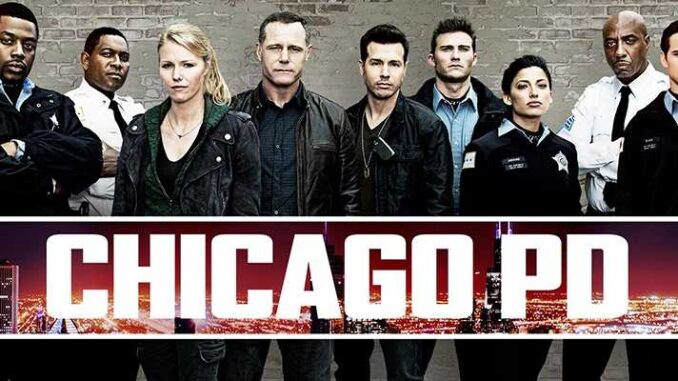
When Two Worlds of Justice Collide: Comparing Chicago P.D. to Law & Order: SVU
The flickering blue light of a police procedural has long captivated audiences, drawing them into the high-stakes world of crime and punishment. Among the myriad shows that have graced our screens, Chicago P.D. and Law & Order: Special Victims Unit stand as titans of the genre, each offering a distinct, yet equally compelling, vision of justice. While both dramas are anchored in the relentless pursuit of wrongdoers, their philosophies, methods, and the very definition of “justice” they champion could not be more divergent, creating a fascinating collision of worlds where the ends sometimes justify the means, and other times, the means are the end.
At the heart of this ideological chasm lie their respective protagonists: Sergeant Hank Voight of Chicago P.D.’s Intelligence Unit and Captain Olivia Benson of Law & Order: SVU. Voight is the embodiment of the “dark knight” archetype – a morally ambiguous figure who operates in the murky gray areas of the law. His world is Chicago’s underbelly, a place where paperwork often yields to a well-placed threat, a clandestine meeting, or even a fist. For Voight, justice is a raw, visceral force; it’s about making the perpetrator pay, often with a pound of flesh, and ensuring the victim finds peace, even if it means Voight himself gets his hands dirty. We’ve seen him plant evidence, rough up suspects, and outright defy orders, all in the name of what he believes is right. His is a justice forged in the heat of the moment, a brutal pragmatism born from the conviction that the system is too slow, too soft, or too easily manipulated to truly protect the innocent.
Contrast this with Olivia Benson, a beacon of unwavering integrity and empathy in the often-squalid world of sexually based offenses. Benson navigates New York’s intricate legal landscape with a steadfast commitment to procedure, victim advocacy, and the letter of the law. Her justice is not about retribution, but about restoration and due process. She meticulously gathers evidence, ensures victims are heard and believed, and tirelessly works within the system to secure convictions, even when faced with insurmountable odds or devastating legal loopholes. Where Voight might strong-arm a confession, Benson builds a case brick by painstaking brick, relying on forensics, psychological insights, and the power of testimony. Her compassion is her weapon, and her adherence to ethical policing is her shield, defining justice as a societal responsibility to protect the vulnerable and ensure accountability within a structured framework.
This fundamental difference in leadership trickles down into the very fabric of their units’ operational methodologies. Chicago P.D.’s Intelligence Unit operates like a tight-knit family of street soldiers, often improvising, taking calculated risks, and venturing into dangerous situations with minimal backup. Their investigations are kinetic, fueled by chases, tense interrogations, and aggressive tactics. The camera often follows them into dimly lit alleys, abandoned warehouses, and chaotic crime scenes, emphasizing the raw, immediate threat they face. Justice in Chicago is often snatched from the jaws of chaos, a direct, sometimes violent, confrontation with evil. The show celebrates the adrenaline-fueled hunt, the satisfaction of a suspect cornered, and the personal sacrifices made to achieve a sense of closure.
SVU, on the other hand, embraces a more methodical, almost surgical, approach. While the detectives certainly engage in field work, a significant portion of their cases unfold in interrogation rooms, medical examination facilities, and ultimately, the courtroom. Their battleground is often psychological, dissecting trauma, sifting through conflicting accounts, and meticulously building airtight cases. The show delves deep into the aftermath of crime, exploring the long-term psychological scars on victims and the complexities of navigating the justice system. SVU’s strength lies in its ability to illuminate systemic failures, legal ambiguities, and societal prejudices that often allow perpetrators to evade punishment. Justice here is a protracted battle, fought with legal briefs, expert testimony, and emotional appeals, aiming not just for conviction, but for systemic change and victim empowerment.
Ultimately, these two worlds of justice, though both dedicated to fighting crime, represent a profound societal debate. Chicago P.D. asks: how far is too far to protect the innocent? Does the law, in its ideal form, truly serve justice in a broken world, or must it sometimes be bent, even broken, to achieve a righteous outcome? It caters to an audience’s desire for swift, decisive action, and perhaps, a vicarious catharsis through Voight’s willingness to be the bad guy for the greater good. Law & Order: SVU, conversely, insists on the sanctity of process, the importance of victim voices, and the imperative to uphold the law even when it feels agonizingly slow or frustratingly imperfect. It challenges us to confront the uncomfortable realities of sexual violence and to advocate for a justice system that is empathetic, thorough, and unwavering in its commitment to truth.
In their compelling differences, Chicago P.D. and Law & Order: SVU don’t just offer entertainment; they offer a mirror to our own varying definitions of right and wrong, and the ongoing tension between raw retribution and refined restoration. They are two vital lenses through which we examine the relentless human struggle for justice in a world that often seems determined to deny it.
md07
